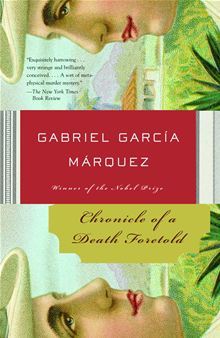More on this book
Community
Kindle Notes & Highlights
ON THE DAY they were going to kill him, Santiago Nasar got up at five-thirty in the morning to wait for the boat the bishop was coming on.
“Any man will be happy with them because they’ve been raised to suffer.”
And that thought frightened her, because she’d always felt that only children are capable of everything.
It was she who did away with my generation’s virginity. She taught us much more than we should have learned, but she taught us above all that there’s no place in life sadder than an empty bed.
I remember thinking that distress like theirs could only be put on in order to hide other, greater shames.
That was all that we had left of him: the memory of a victim.
When I saw her like that in the idyllic frame of the window, I refused to believe that the woman there was who I thought it was, because I couldn’t bring myself to admit that life might end up resembling bad literature so much.
Most of all, he never thought it legitimate that life should make use of so many coincidences forbidden literature, so that there should be the untrammeled fulfillment of a death so clearly foretold.
My personal impression is that he died without understanding his death.
Fatality makes us invisible.
“Shit, cousin,” Pablo Vicario told me, “you can’t imagine how hard it is to kill a man!”


